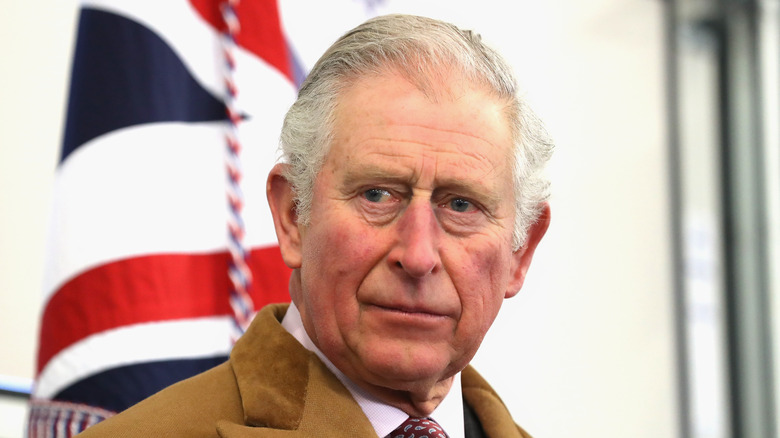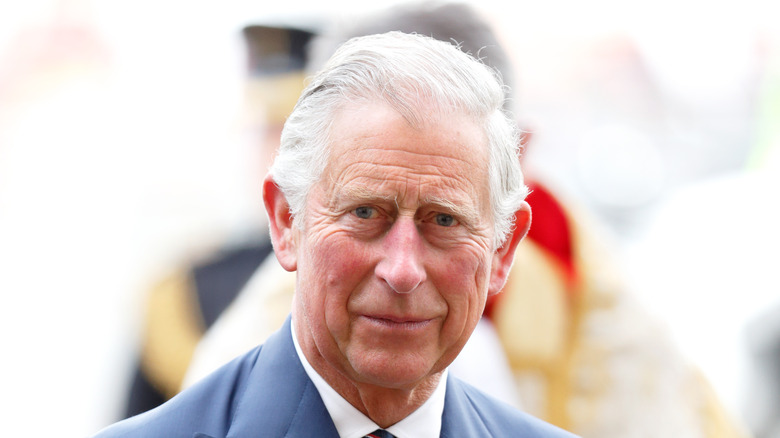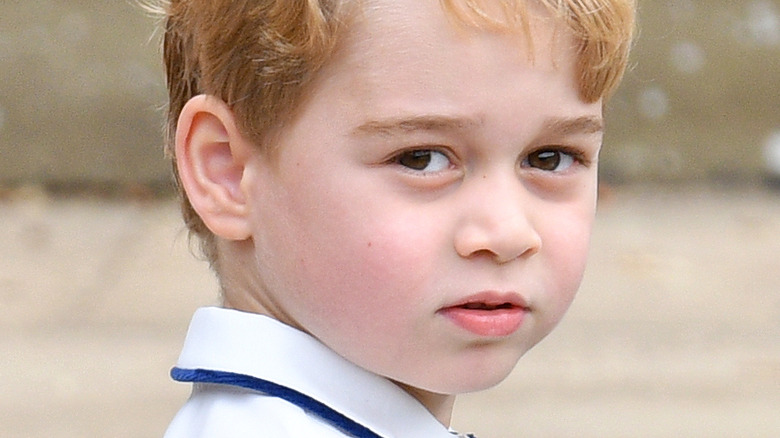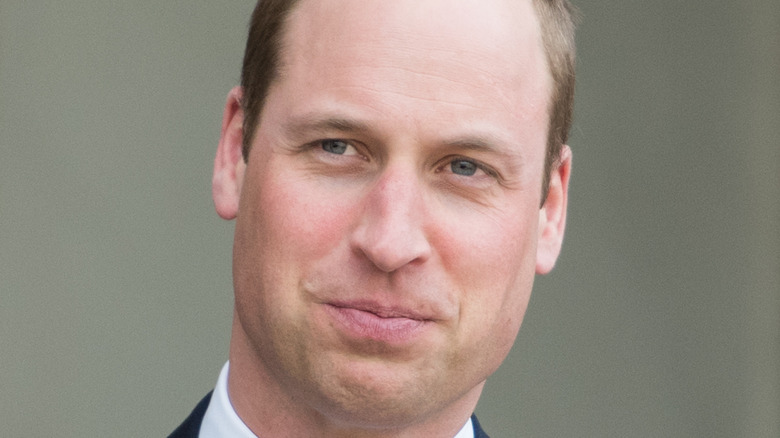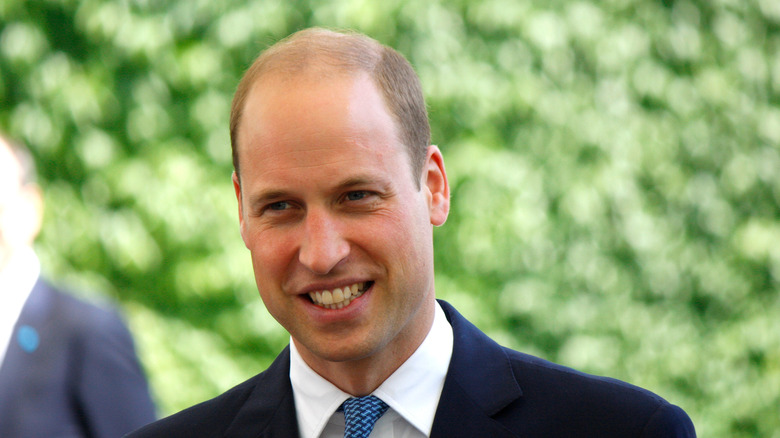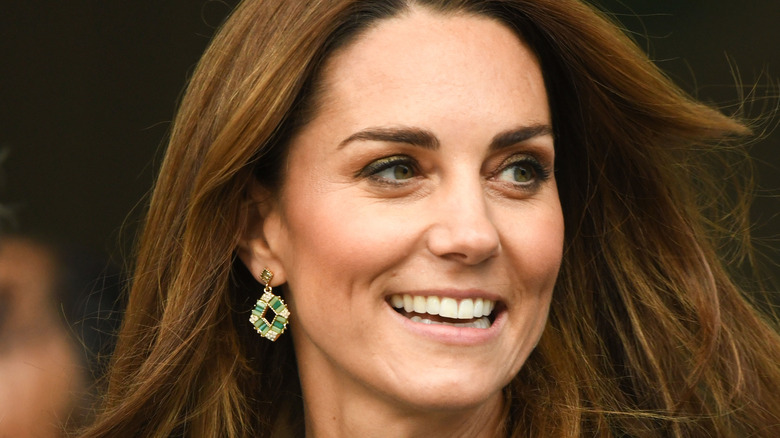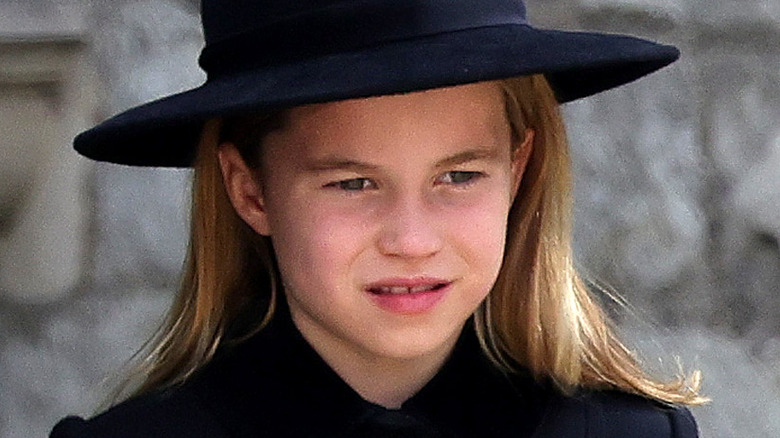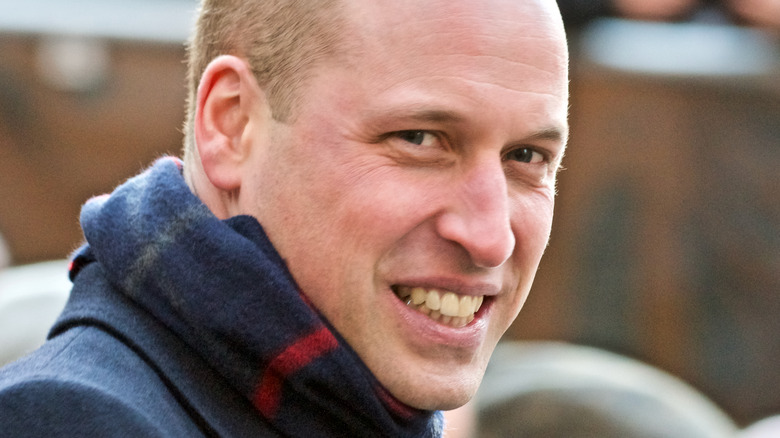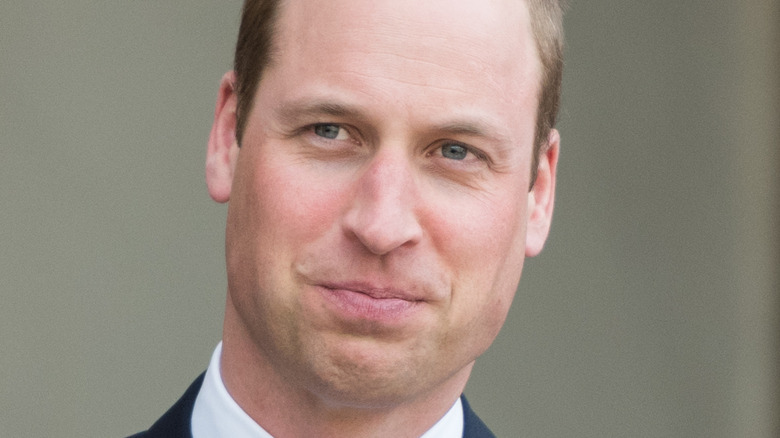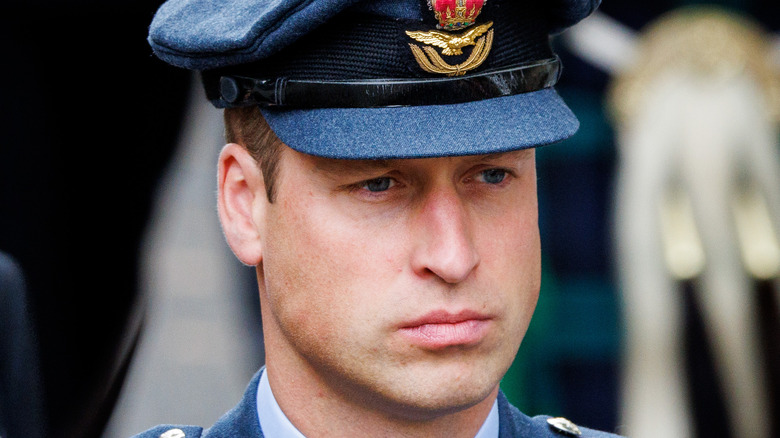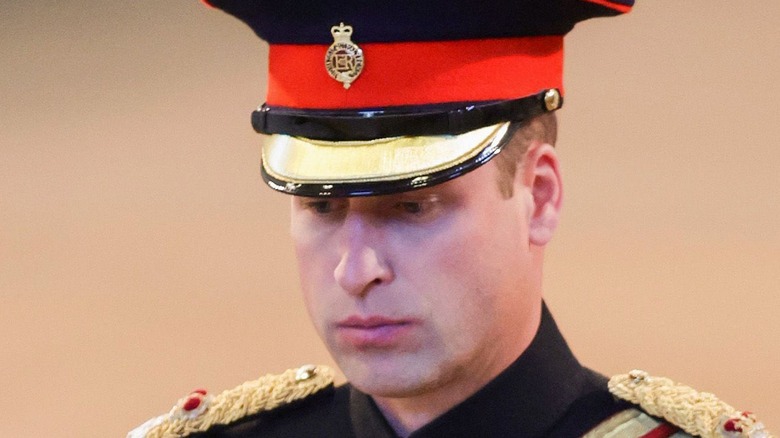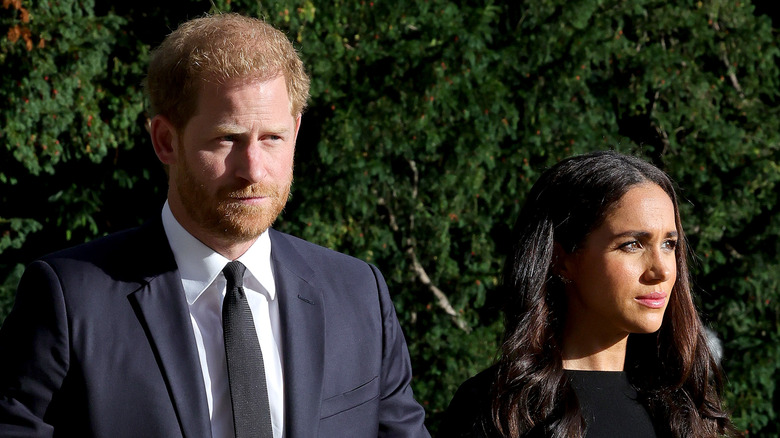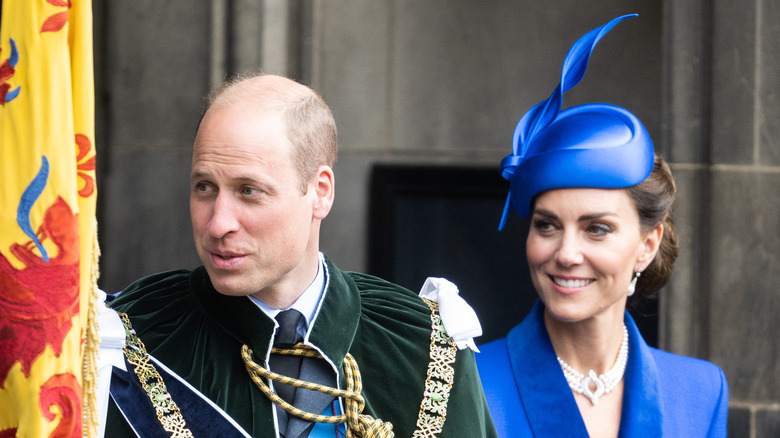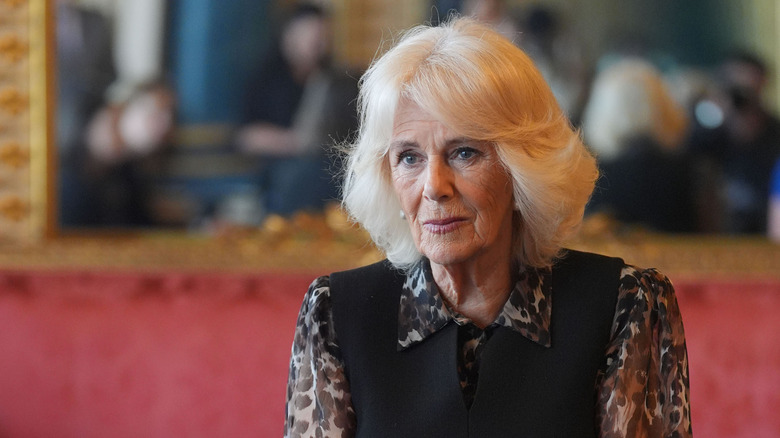Here's What Will Happen When King Charles III Dies
In early 2024, King Charles III had been Britain's monarch for just a little over a year when he revealed that a recent medical examination for an enlarged prostate had uncovered a shocking health crisis. "Subsequent diagnostic tests have identified a form of cancer," Buckingham Palace declared in a statement. While the palace announced that His Royal Highness was undergoing treatment, the specific type of cancer at the heart of that diagnosis has yet to be revealed, leaving the public more or less in the dark about the severity of his illness.
In his first official statement as king, Charles insisted that he would follow in the footsteps of his mother, Queen Elizabeth II, and remain monarch until his death. "As the queen herself did with such unswerving devotion, I too now solemnly pledge myself, throughout the remaining time God grants me, to uphold the Constitutional principles at the heart of our nation," he declared. In other words, he plans to be king until he dies, like his mother did before him.
Sadly, a report from the Daily Beast in late April indicated that the king's health had deteriorated far more than what Buckingham Palace has been divulging. "Everyone is staying optimistic, but he is really very unwell. More than they are letting on," a source, purported to be a longtime friend of the royals, told the outlet. If the worst were to occur, what would take place next? Here's what would happen when King Charles III dies.
Operation Menai Bridge will kick in
Much like royal weddings and coronations, royal funerals are elaborate, tradition-laden events that adhere to rituals that date back hundreds of years. Much as the funeral plans for Queen Elizabeth II — which were coded as Operation London Bridge — plans for the death of Prince Charles III were underway at the moment he ascended to the throne. As morbid as that may seem, it's a sad necessity, given the extraordinary amount of meticulous planning that must be done in advance of a British monarch's funerals.
For Charles' funeral, those plans have been code-named Operation Menai Bridge, named after a suspension bridge that connects the mainland of Wales to an island known as Anglesey. Speaking with Australia's 9News program "Today," Former Royal Protection Officer Simon Morgan explained why planning needed to be undertaken so quickly. "He is 73 years of age, it's got to be in the back of your mind, and from the police, we've got to start planning again for the future," he said.
As an unnamed source explained to the Daily Beast, it's likely that the queen's funeral will be the template upon which all future royal funerals will be based. "The queen's funeral went like clockwork and set a high bar," the source said. Meanwhile, given the recent news about Charles' health, Operation Menai Bridge has understandably become top of mind. "The plans have been dusted off and are actively being kept up to date," a former staffer told the outlet.
Prince George will become heir apparent
One part of Operation Menai Bridge that will immediately go into effect following the death of King Charles III is that Prince William will become king. This means that his eldest son, Prince George, will automatically be next in line to the throne and will be the heir apparent. It can be assumed that just as William did upon Charles' ascension to the throne, George will inherit his father's previously inherited and earned titles. As soon as William becomes king, George is expected to become Prince of Wales; given William's decision to forgo the investiture ceremony, however, it remains to be seen whether George will participate in the traditional ritual, as Charles did, or simply ignore that aspect, as his father did.
The Prince and Princess of Wales have already begun to prepare George for life as heir to the throne. The boy made his royal debut at Wimbledon in July 2022, a tradition that is prized by both of his parents.
In his book "Battle of Brothers," royal author Robert Lacey wrote that the parents of three were intentional about how they told George what his future holds. As Lacey noted, while the exact conversation hasn't been revealed, "sometime around the boy's seventh birthday in the summer of 2020, it is thought that his parents went into more detail about what the little prince's life of future royal 'service and duty' would particularly involve."
The order of succession will be updated
As it was following the death of Queen Elizabeth II, the order of succession will be updated following the death of King Charles III. It can be expected that Prince William will immediately become king, but the change in the order of succession will impact several members of the royal family.
Traditionally, the monarch's firstborn — the heir to the throne — and their children take precedence in the line of succession; this is why Prince William's children are currently ahead of Prince Harry, aka the "spare."
If and when Prince George has children, they will automatically be ahead of his sister Princess Charlotte and his brother Prince Louis. When his grandfather dies, George and any children he might have will continue to move up in order of succession and will likely all receive new titles. This pattern will continue all the way through Prince Harry, his children, and any children they might have had ahead of the passing of King Charles III.
Prince William might change his name
Queen Elizabeth II bucked tradition and opted to keep her given name when she took over as monarch, and King Charles III did the same when he took the throne. Prior to Elizabeth's reign, it was traditional for a monarch to take a new name; her father, for example, was known as Prince Albert before becoming king, at which point he was known as George VI. It's unclear whether Prince William will stick with his name and become King William V, or if he will choose to take on a new royal identity instead.
If William does decide to change his name, Cosmopolitan has pointed out that he might choose to keep part of his given name within his new royal name. William's entire name is William Arthur Philip Louis, Duke of Cambridge, Earl of Strathearn, and Baron Carrickfergus.
William, however, hasn't dropped any hints about what his kingly name will be. In early September 2022, William and Princess Catherine were in a Zoom meeting with teachers and children from a school in Lancashire when the heir's name came up. At one point, William was asked, "The first William was William the Conqueror. What do you want to be called?" Town & Country Magazine reported that while William laughed and appeared to find the question amusing, he didn't give the child an answer.
Princess Catherine will receive a new title
Camilla Parker-Bowles was named Camilla, Queen Consort, after her husband King Charles III ascended to the throne. Prince William's wife also went through a title change: She went from Kate Middleton, Duchess of Cambridge, to Catherine, Princess of Wales.
In a similar fashion, Princess Catherine is likely to receive another new title following the death of her father-in-law. While the Princess of Wales will also technically be queen consort, as she will be becoming queen through marriage and not by blood, Cosmopolitan has noted that it's very likely she will be known simply as Queen Catherine. She will also be crowned alongside her husband at his own coronation.
Interestingly enough, that won't be the only change Catherine will encounter: it seems that an old law dictates she will become the owner of every dolphin, whale, and sturgeon that swims in the waters of Britain.
Prince William's children will get new titles
Princess Catherine isn't the only member of Prince William's immediate family who will get a title change when King Charles III dies. As The Express has pointed out, his children will all experience title changes, and one particular member of the royal family could lose every title she was born with: Princess Charlotte. As pointed out by the outlet, as it stands, Charlotte will inherit the Princess of Wales title, as it is passed down to either a wife of a prince or a daughter of a prince. But if Prince George is married when his father becomes king, Charlotte will ultimately lose the opportunity to be Princess of Wales.
The outlet also noted that broadcaster OSSA explained, "When that happens, life as Charlotte knows it will look very different — in fact, there is a good chance she'll lose her titles when her dad is on the throne."
Prince William might move to Buckingham Palace
It's been expected that the reigning monarch will move into Buckingham Palace when he or she takes over. In her lifetime, Queen Elizabeth II moved through several royal homes, including Balmoral and Windsor Castle, but considered Buckingham Palace her main residence. The castle is currently being renovated, which is not expected to be complete until 2027.
In August 2020, Sunday Times royal expert Roya Nikkah told Express that while it's expected Prince William and Princess Catherine will move into Buckingham Palace, it's not set in stone. Nikkah said, "The official line is that the Cambridges will one day move to the palace when they become king and queen. I imagine that it will still be monarchy HQ and I wouldn't be surprised if the Cambridges stayed in Kensington Palace."
It's worth noting that the pair moved their family of five to Anmer Hall in July 2022 and have appeared happy with the decision.
Prince William will come into a giant inheritance
After Queen Elizabeth II died and King Charles III took the throne, Prince William became the Prince of Wales and the Duke of Cornwall. And when he became the Duke of Cornwall, he took over the Duchy of Cornwall. His net worth reportedly shot up to $100 million when he took over the Duchy of Cornwall, which is a sprawling estate worth around $1 billion.
When he is crowned king, William will stand to inherit yet again. He will take on the Duchy of Lancaster, another enormous property empire, and it's sure to boost his net worth accordingly. On top of that, it's likely he will inherit money from his father, including from investments his father has made, and he will also inherit the Royal Art Collection.
On top of all that, the monarch does not have to pay inheritance tax. That said, since 1993, Charles III and Elizabeth II have paid income tax voluntarily. William has already followed in their footsteps, and it seems safe to presume he'll do the same when he becomes king.
As king, Prince William will take on more duties
Prince William will ascend the throne following the death of King Charles III, and as such will automatically become head of state and take on a plethora of new duties. As noted on the official website for the royal family, "The Monarch undertakes constitutional and representational duties which have developed over one thousand years of history. ... The Sovereign acts as a focus for national identity, unity and pride; gives a sense of stability and continuity; officially recognises success and excellence; and supports the ideal of voluntary service." This means that like Queen Elizabeth II and King Charles before him, Prince William will be expected to act as the center of national identity for the country.
Unlike kings and queens of the past, the modern British monarchy and its leader no longer have any real impact on the political moves that Britain makes. But that doesn't mean that William won't be on the move — as king, his calendar will be filled with royal obligations.
Prince William will have to take a number of oaths
Another change that will take place following the death of King Charles III and the ascension of Prince William to the monarch is that the latter will find himself taking a number of official and important oaths. For example, when King Charles ascended the throne, he took an oath to keep the Church of Scotland preserved.
William will also be called upon to participate in several ceremonies outside of his own all-important coronation. The immediate ceremony will be the official proclaiming of William as king in front of the Accession Council. When his father took over the monarchy, this particular event took place at St James' Palace in London.
Following that ceremony, William will make his first declaration as monarch, which also happens with the Accession Council. In this ceremony, William will promise to uphold the constitutional government.
Prince Harry probably won't be happy with his role in King Charles' funeral
Under normal circumstances, the funeral of King Charles III would see both his sons, Princes William and Harry, play key ceremonial roles. In Harry's case, that's up in the air due to his strained relationship with the rest of the royals — particularly his brother, who will have already become Britain's new king by the time Operation Menai Bridge is deployed and their father's funeral takes place.
According to Vanity Fair, a clue to Harry's potential involvement in his father's funeral can be found in the response that the Duke of Sussex received when his offer to return to royal duties, helping to pick up the slack after Charles' cancer diagnosis, was turned down flat. "There is a carefully mapped out contingency plan in place if the king is unable to carry out public-facing engagements over the coming months, and none of these involve Prince Harry," a source stated. In addition, another source told Vanity Fair that the scorched-earth relationship between the brothers has pretty much guaranteed that Harry's days of visiting youth centres and cutting ribbons on behalf of his family are long gone. "The brothers are barely speaking so the idea of William wanting Harry to come back and represent the firm is both laughable and unthinkable," said the source.
Given that William will be calling the shots about his father's funeral arrangements, it's easy to assume Harry's participation will be as minimal as possible.
Prince William will break from tradition with his coronation
When King Charles III's death will instantly trigger his funeral plans, and William will immediately ascend to the throne, there will be no rush to move forward with the new king's coronation — remember, Charles' coronation didn't take place until seven months after his mother's death.
A source told The Sunday Times that attending his father's coronation gave William reason to think about his own, and he reportedly has some changes in mind that will shake things up a bit. According to that source, reported People, William "is really thinking, how do we make this coronation feel more relevant in the future? He is mindful of the fact that in 20 years' time, or whenever his time comes, how can the coronation be modern but also unifying to the nation and the Commonwealth?" In fact, that source added, "I think his coronation will look and feel quite different."
WIlliam's revamping of the coronation is in line with reports that he's also eager to reposition the monarchy itself, to drag the outdated institution into the 21st century. "The prince and princess are keen to do things in their own way," a spokesperson for the Prince and Princess of Wales told People. As the outlet pointed out, William has already broken with tradition by opting not to participate in the Prince of Wales investiture ceremony, in which his father had to travel to Wales and be "crowned" by his mom.
Queen Camilla will have a new role as Queen Dowager
Upon the death of King Charles III, what role will Queen Camilla play within the royal family? While some may assume she'd take on the title of Queen Mother — as was the case when Queen Elizabeth II became monarch upon the death of her father, King George VI — that actually won't be the case. Because she's not the mother of Charles' children, she's not eligible to be called Queen Mother.
Because her technical title is Camilla, Queen Consort, she's instead in line for another title. According to The Independent, any queen consort who is widowed then becomes queen dowager.
As Town & Country noted, the Queen Dowager title hasn't been used for nearly 200 years, after the death of King William IV in 1837. When he died, he and his wife, Queen Adelaide, had no children; as a result, the next in line for the throne was his niece, Queen Victoria, with Adelaide becoming queen dowager.
